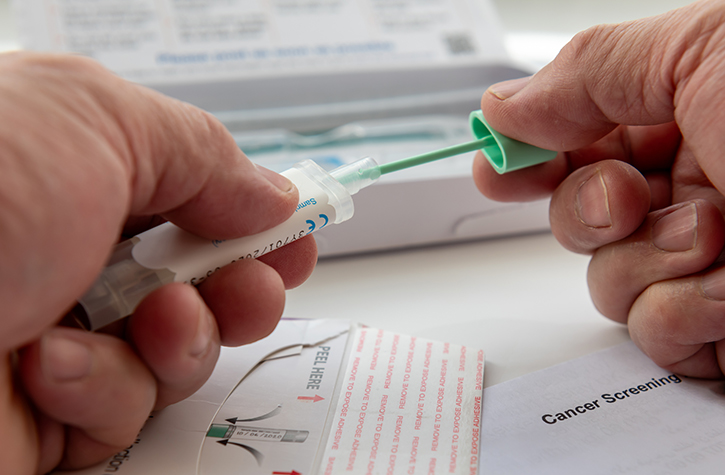Journal of Clinical Pathways — August 18, 2017
Systemic inflammation combined with sarcopenia could double the risk of death in patients with colorectal cancer (CRC), suggesting that these markers have clinical predictive value, researchers say.
Systemic inflammation, as assessed by neutrophil-to-lymphocyte ratio (NLR), is among the commonly measured pretreatment factors that predict therapeutic response and cancer survival, whereas sarcopenia predicts poor surgical outcomes.
To investigate whether assessing both NLR and sarcopenia predicts survival in early CRC, Dr. Elizabeth Cespedes Feliciano of the Kaiser Permanente Northern California Division of Research and colleagues prospectively studied 2,470 patients (about half female; mean age, 63) with stage I to III CRC diagnosed from 2006 through 2011.
NLR was averaged from a mean of three measures taken within two years before diagnosis. An NLR <3 indicated low or no inflammation; 3 to <5, moderate inflammation; and 5 or more, high inflammation.
CT findings were used to calculate skeletal muscle index. Sarcopenia was defined as <52 cm2/m2 for overweight men and <54 cm2/m2 for obese men, and <38 cm2/m2 for overweight and <47 cm2/m2 for obese women.
As reported online August 10 in JAMA Oncology, 46% of participants had an NLR of 3 or more and 44% had sarcopenia. During a median of six years of follow-up, 656 patients died, about half from CRC.
The team found a dose-response effect between increasing NLR and sarcopenia: compared with an NLR <3, the likelihood of sarcopenia was about a third higher for an NLR of 3 to <5 and close to 50% higher for an NLR of 5 or more.
An NLR of 3 or more independently predicted overall mortality (hazard ratio, 1.64) and CRC-related death (HR, 1.71). The same was true for sarcopenia: HR 1.28 for overall mortality and 1.42 for CRC-related death.
Patients who had both sarcopenia and an NLR of 3 or more (vs. neither risk factor) had more than double the risk of overall mortality (HR, 2.12) and CRC-related death (HR, 2.43).
Dr. Feliciano told Reuters Health by email, “While inflammation is known to drive muscle breakdown in later-stage cancer, our results suggest this process might be occurring in earlier stages of cancer as well.”
“The important part of this study is that we found an association between two measures that are routinely collected in clinical care,” she stressed. “Neutrophil and lymphocytes are part of routine complete blood counts, and muscle mass can be measured from CT scans. No extra testing is necessary; these data already exist and could be used to help identify high-risk patients.”
Both conditions are potentially modifiable, she added, so assessing them can also help guide supportive interventions.
“Exercise, particularly resistance training and/or physiotherapy, has the potential to reduce both sarcopenia and inflammation in cancer patients,” Dr. Feliciano pointed out. “Exercise is safe, recommended for cancer patients – including those on active treatment – and has known benefits for quality of life and physical function. However, most cancer patients do not meet exercise guidelines.”
“Reductions in sarcopenia and inflammation are among the proposed mechanisms for how resistance training may help patients complete chemotherapy,” she added.
Dr. Crystal Denlinger, Chief, Division of Gastrointestinal Medical Oncology at Fox Chase Cancer Center, Philadelphia, told Reuters Health, “This hypothesis-generating study raises the possibility that (inflammation and sarcopenia) could be additional features considered with other clinical factors when making decisions regarding curative-intent treatment.”
“However, before we adopt this strategy as prognostic, it will need to be validated in other CRC populations,” she said by email. “Further evaluation regarding how a patient’s immune fitness and inflammatory response affects overall health and CRC-specific outcomes is necessary.”
“In addition, it is unclear whether identifying inflammation and/or sarcopenia at or before diagnosis should alter post-diagnostic management,” she observed. Additional studies are needed to evaluate whether intervening to improve sarcopenia or lower inflammation “can improve long-term outcomes in appropriate patients,” she concluded.
This Reuters Health article first appeared in the Journal of Clinical Pathways
For more information, see My Doctor Online articles about Colorectal Cancer.






